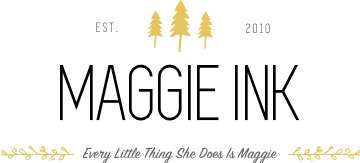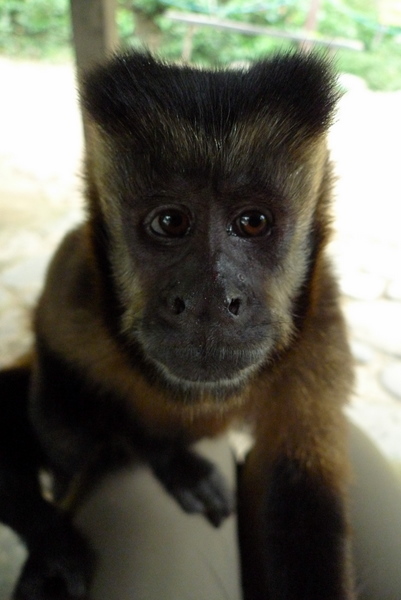My wounds were open and gaping, blood running down my hand in hot, thick rivers.
And I was in small-town Bolivia, alone with a mediocre Spanish-English dictionary.
I approached people on the dusty street for assistance.
“Far-mah-SEE-yah?” I sounded out the word for pharmacy in hesitant Spanish.
One by one, each person cast their gazes downward.
“Far-mah-SEE-yah?” I said again.
Everybody quickly shuffled away from the crazy, bleeding lady.
“Far-mah-SEE-yah?” I asked an old man, who was sweeping dirt from a dirt patio onto a dirt road.
Nope, he shook his head.
Sobbing, I shook my fist at the sky and cried out to the heavens. “Far-mah-SEE-yah!”
“Oh. Far-MAH-see-yah,” the old man said, changing the emphasis ever so slightly.
“Yes! Si, si,” I said, gratefully.
“Why you not say so? Is right here.”
He ushered me inside his unmarked store. A long glass counter ran the length of the room, crowded with untidy stacks of boxes. The shelves along the wall sagged under heavy glass bottles and a rainbow assortment of pills. Near the window, several fat mason jars were filled to the brim with urine-colored fluid and pale spirals of snake bodies.
The man tossed a stained white coat over his clothes and looked at me expectantly over half-rimmed spectacles.
I held out my hand, which was Swiss-cheesed with several fang holes.
“Mono es loco!” I said, in my best Spanish. “Mono … uh, el bite-o my mano.”
Then I bared my teeth, let our a guttural growl and pantomimed the tearing of flesh, though I probably looked more like a grumpy Cocker Spaniel than a terrifying monkey.
“Si,” the doctor agreed. “Loco.”
“Necesito medicines,” I said, asking for pills.
He wanted to know what kind.
“Antibiotics. Er, antibiotico?”
His coat swirled as he turned, shimmying around the shelves, grabbing a wide variety of pharmaceuticals. He fanned them out in front of me.
“Which one?”
“No se. Which one for mono bite?”
He shrugged.
“No se. Which one you want?”
I shrugged and pointed at something that had a lot of important-sounding Zs in the name.
“How many?” he asked.
“How many should I have?”
“How many you want?” He held out a handful of pills and looked hopeful. “Viente bolivianos for all.”
I was pretty sure antibiotics didn’t work that way. That is, just swallow a few dozen at random and keep your fingers crossed.
I excused myself and jogged to the Internet cafe down the street. A few quick searches later, I had my answer.
Back at the pharmacy, I gave the man a piece of paper with the name of an antibiotic, plus the strength and quantity I needed.
“No have,” he said. Then he pushed a long package of orange and red-striped pills across the counter. The foil was old, peeling off the back of the tamper-resistant strip. “Good enough.”
I didn’t have much choice. This place had five internet cafes and several watering holes, but only one pharmacy. It would take many hours by bus through coca fields to get to the next sizable town. In addition, labor protests had shut down some of the major roads, leaving me practically stranded in this rural village.
That said, I didn’t want to take unknown pills, since I was fairly certain they would send me down the rabbit hole to wonderland.
I firmly said no, declining the strange antibiotics.
Later, I had my wounds sewn shut in a cluttered, moldy room. The local hospital was dirty enough that everyone recommended this place — a veterinarian’s office — as a safer alternative.
The vet, a small but sweaty man who had a mild command of the English language, asked for details about my monkey attack. My friend Deborah helped me translate the incident.
The vet knew I had been volunteering in the surrounding jungle at a primate sanctuary, a place where formerly abused and mistreated monkeys are reintroduced to the wild. I told him that during my shift, a stocky monkey named Reno hopped on my lap for an afternoon snooze.
Reno was the size and shape of a muscular basketball, but his fur was as soft as a plush toy. When I stroked his back, he snuggled deeper into the crease between my legs and hips. The sun was shining, and the air smelled like fresh rain and papaya. It was a good moment.
Just then, Reno pissed all over me.
As I opened my mouth and blurted out, “What the –?”, Reno hopped down, grabbed my hands and sunk his teeth into my flesh.
The bites were vicious, deep enough to hear fang make contact with bone. As the blood began to flow, Reno lapped at the liquid like some kind of Robert Pattinson vampire monkey.
“See, mono es loco!” I said, wrapping up my story.
He tugged at the black thread that now zig-zagged through my skin, tied a knot and trimmed the string.
“Better,” he said, gently patting my stitches. “Come back if the pus gets too bad.” He dabbed a purple fluid on the wound. It looked terrible.
With viente bolivianos in my pocket, I walked back to the far-MAH-see-yah for a handful of pills.


















